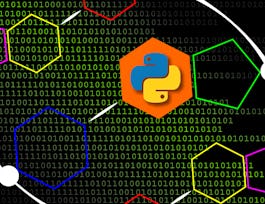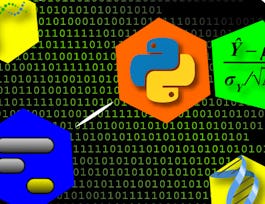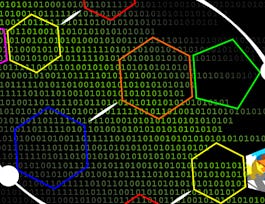This course introduces you to the basic biology of modern genomics and the experimental tools that we use to measure it. We'll introduce the Central Dogma of Molecular Biology and cover how next-generation sequencing can be used to measure DNA, RNA, and epigenetic patterns. You'll also get an introduction to the key concepts in computing and data science that you'll need to understand how data from next-generation sequencing experiments are generated and analyzed.


Introduction to Genomic Technologies
This course is part of Genomic Data Science Specialization
Taught in English
Some content may not be translated


Instructors: Steven Salzberg, PhD
100,964 already enrolled
Included with 
Course
(4,471 reviews)
96%
Skills you'll gain
Details to know

Add to your LinkedIn profile
5 quizzes
Course
(4,471 reviews)
96%
See how employees at top companies are mastering in-demand skills

Build your subject-matter expertise
- Learn new concepts from industry experts
- Gain a foundational understanding of a subject or tool
- Develop job-relevant skills with hands-on projects
- Earn a shareable career certificate


Earn a career certificate
Add this credential to your LinkedIn profile, resume, or CV
Share it on social media and in your performance review

There are 4 modules in this course
In this Module, you can expect to study topics of "Just enough molecular biology", "The genome", "Writing a DNA sequence", "Central dogma", "Transcription", "Translation", and "DNA structure and modifications".
What's included
8 videos2 readings1 quiz
In this module, you'll learn about polymerase chain reaction, next generation sequencing, and applications of sequencing.
What's included
3 videos1 quiz
The lectures for this module cover a few basic topics in computing technology. We'll go over the foundations of computer science, algorithms, memory and data structures, efficiency, software engineering, and computational biology software.
What's included
6 videos1 quiz
In this module on Data Science Technology, we'll be covering quite a lot of information about how to handle the data produced during the sequencing process. We'll cover reproducibility, analysis, statistics, question types, the central dogma of inference, analysis code, testing, prediction, variation, experimental design, confounding, power, sample size, correlation, causation, and degrees of freedom.
What's included
10 videos2 readings2 quizzes
Instructors

Offered by
Recommended if you're interested in Data Analysis

Johns Hopkins University

Johns Hopkins University

Johns Hopkins University

Johns Hopkins University
Why people choose Coursera for their career




Learner reviews
Showing 3 of 4471
4,471 reviews
- 5 stars
66.20%
- 4 stars
27.08%
- 3 stars
5.20%
- 2 stars
0.98%
- 1 star
0.51%
New to Data Analysis? Start here.

Open new doors with Coursera Plus
Unlimited access to 7,000+ world-class courses, hands-on projects, and job-ready certificate programs - all included in your subscription
Advance your career with an online degree
Earn a degree from world-class universities - 100% online
Join over 3,400 global companies that choose Coursera for Business
Upskill your employees to excel in the digital economy
Frequently asked questions
Access to lectures and assignments depends on your type of enrollment. If you take a course in audit mode, you will be able to see most course materials for free. To access graded assignments and to earn a Certificate, you will need to purchase the Certificate experience, during or after your audit. If you don't see the audit option:
The course may not offer an audit option. You can try a Free Trial instead, or apply for Financial Aid.
The course may offer 'Full Course, No Certificate' instead. This option lets you see all course materials, submit required assessments, and get a final grade. This also means that you will not be able to purchase a Certificate experience.
When you enroll in the course, you get access to all of the courses in the Specialization, and you earn a certificate when you complete the work. Your electronic Certificate will be added to your Accomplishments page - from there, you can print your Certificate or add it to your LinkedIn profile. If you only want to read and view the course content, you can audit the course for free.
If you subscribed, you get a 7-day free trial during which you can cancel at no penalty. After that, we don’t give refunds, but you can cancel your subscription at any time. See our full refund policy.

